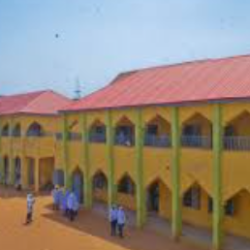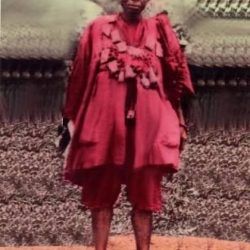The TETFUND Centre of Excellence in Urology and Nephrology at Usmanu Danfodiyo University Teaching Hospital (UDUTH), Sokoto, has indeed marked a monumental achievement in Nigeria’s medical landscape with its first successful kidney transplant on February 2, 2025. This milestone not only highlights the center’s advanced capabilities but also underscores the rich legacy of medical knowledge and innovation in the region, particularly within the historical context of the Sokoto Caliphate.
Key Highlights of the Achievement:
- Pioneering Kidney Transplant:
The successful kidney transplant, led by Prof. Samaila Arzika Mungadi and his team, is a testament to the center’s cutting-edge facilities and the expertise of its medical professionals. The patient’s recovery and imminent discharge signify the center’s ability to deliver world-class healthcare. - State-of-the-Art Facilities:
The Centre of Excellence is equipped with advanced infrastructure, including solar-powered operating theaters, specialized wards, dialysis units, and a simulation unit for training. These facilities position the center as a leader in urology and nephrology care in West Africa. - Historical Legacy of Medical Excellence:
The center’s achievement is deeply rooted in the historical contributions of the Sokoto Caliphate, particularly Sultan Muhammadu Bello, who authored a treatise on kidney diseases in the 19th century. His work, Risālat Amr al-Kulyati wa ‘Ilājiha, demonstrates an early understanding of nephrology and highlights the region’s long-standing tradition of medical scholarship. - Regional and Global Impact:
With this success, the center is poised to become a regional hub for kidney transplants and nephrology care, reducing the need for Nigerians to seek treatment abroad. It also serves as a model for other African nations aiming to advance their healthcare systems. - Interdisciplinary Collaboration:
The center’s highly skilled team, comprising professionals from nursing, pharmacy, laboratory sciences, and social health services, reflects the importance of interdisciplinary collaboration in achieving medical breakthroughs.
Historical Context: Sultan Muhammadu Bello’s Contributions
Sultan Muhammadu Bello’s work in the 1820s laid the foundation for understanding kidney diseases in the region. His diagnosis and treatment of Emir Malam Yamusa’s kidney condition, as well as his classification of kidney ailments (wind, swelling, and blockage), demonstrate a sophisticated approach to medicine that predates modern nephrology. This historical context enriches the significance of the TETFUND Centre’s achievements, bridging the past and present in the pursuit of medical excellence.
Future Prospects
The success of the first kidney transplant is just the beginning. The center aims to:
- Expand its capacity to perform more transplants and complex urological procedures.
- Foster research and innovation in kidney diseases and treatments.
- Train the next generation of medical professionals in advanced urology and nephrology.
- Collaborate with international institutions to share knowledge and best practices.
The TETFUND Centre of Excellence in Urology and Nephrology at UDUTH, Sokoto, represents a fusion of historical legacy and modern medical innovation. Its groundbreaking achievements honor the intellectual and medical contributions of the Sokoto Caliphate while paving the way for a brighter future in healthcare for Nigeria and the broader region. This milestone is a source of pride and inspiration, demonstrating that with dedication, expertise, and collaboration, Africa can achieve world-class medical advancements.













